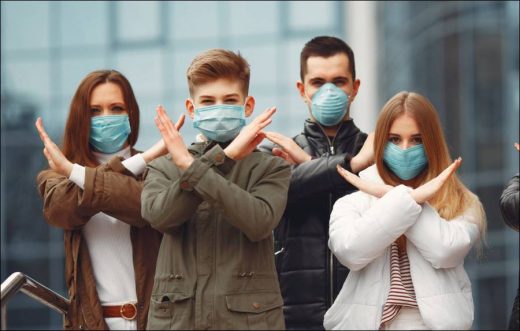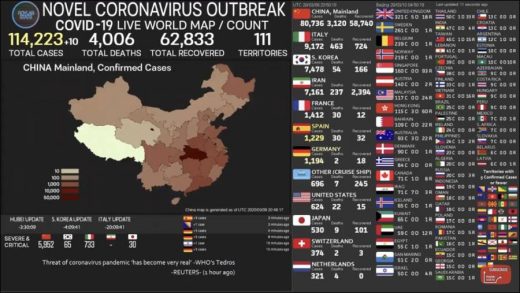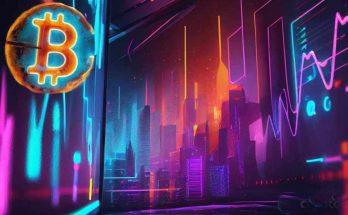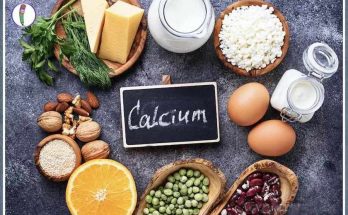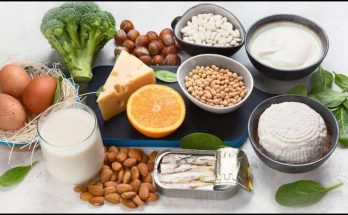The COVID-19 pandemic has changed more things in our lives than we anticipated. I’m not just talking about our personal unhappiness. Our role in the political and economic system and the relationship we have established with these systems have also changed drastically.
Now the epidemic is over and we want to return to our pre-epidemic lives. However, the events we have witnessed show that it will not be that easy. Because the practices and economic measures during the epidemic period created a status quo in itself, and overcoming this indicates a crisis period in itself. What we’re going through right now is probably this crisis.
It is possible to make a reading on two important developments that we have witnessed in recent days. One of these developments is related to the political and the other to the economic status quo of the pandemic. The protests that started in Canada and Trudeau’s attitude towards these protests show how the pandemic issue can be easily used to violate fundamental rights and freedoms. Moreover, this attitude has nothing to be justified by the veil of obscurity in the first days of the pandemic.
Because at first, many people did not have much information about the pandemic. Wearing masks in the open air, washing the bags with detergent and taking them home after being left outside for a few days, the confusion in supermarkets are all we remember from this period. In an article I wrote in those days, I said that Hobbes’s proposition that man is man’s wolf came true with the pandemic, because there was a process in which people both posed a threat to each other and perceived a threat from each other.
There were calls for more states and more intervention from around the world. Because if the purpose of the establishment of the state was to prevent the killing of its citizens by other people, it was time to fight the pandemic just to show the quality of being a state. The closure of public places and the curfews imposed were always based on this logic.
Countries where the idea that the state cannot violate the right to property while performing its security duty, did not neglect to cover the material costs of the measures taken. An operator whose bar was forcibly closed in these countries did not pay the cost that the state had to pay while providing security from his own pocket. Budget resources compensated for this and efforts were made not to experience any grievances.
For example, in countries like Turkey where aid is insufficient, although the government has the authority to combat the pandemic, citizens generally assumed the costs and covered the damage they suffered in the face of the measures taken from their own pockets. In this respect, democratic countries tried to act in accordance with the principle of compensation as much as possible. But the situation was not the same for non-democratic states. Although they liked the power of the measures taken to regulate people’s lives, they were not willing to compensate for the financial losses suffered by individuals and asked individuals to sacrifice themselves for social security.
However, life does not revolve around the principle of financial compensation only. People want to be free in the public sphere and have absolute rights over their own bodies. That is why there are many people who are skeptical of the measures to combat the epidemic. Those who are against vaccination or who have to oppose the necessity of vaccination in order to survive are in this category.
Caricaturing these people too quickly may lead us to approach the issue incorrectly. Because this situation contains a bigger problem of freedom. In an environment where people protect themselves by being vaccinated, it seems quite problematic that those who do not want to be vaccinated want to have a say in their lives and force them to be vaccinated. In other words, the phenomenon of people who were each other’s worms in the first days of the pandemic was supposed to weaken with the vaccine.
This did not happen, however, and some governments took it upon themselves to protect not only people from each other, but also from themselves. It was a dangerous road. The situation has become so absurd that it has become justified to physically harm people in order to protect them from the physical consequences of their own decisions. For example, a Dutchman who could get sick because there was no vaccination was beaten to death for not wanting to be vaccinated.
At this point, it should be accepted that the argument of reducing the burden on the health system may open the door to another authoritarianism. Because the regulation of people’s lifestyles and preferences on the grounds that they will create a burden for the health system may not be limited only to the Kovid-19 epidemic. It can bring with it the prohibition of alcohol, cigarettes, fast food or any kind of consumption substance harmful to health and pave the way for the phenomenon of homogeneity, which Touraine describes as the greatest enemy of democracy. Thus, instead of an ideological authoritarianism, a fascism on healthy living can be established and human choices can be limited by the political authority in the name of doing a good deed.
The events in Canada have already shown how fragile our freedoms are and how eager the concept of the “common good” that emerged during the epidemic period is to violate our individual rights. Canada, which is considered one of the most developed democracies in the world, is responding to the protests of truck drivers, who are required to be vaccinated in order to continue their duties, with unbelievable measures. It criminalizes the civil protest actions of these people and uses its power to freeze the bank accounts of the people participating in the protest without a court order.
This authority was granted to the government by the Emergency Situations Act. That is, this authority needs to be exercised in the event of an extraordinary security threat. But in Trudeau’s world, there is no difference between protests by people who don’t want to be vaccinated, and a serious security risk or a terrible natural disaster. Let’s assume that this power to seize property is used by semi-authoritarian, populist, despotic regimes.
After all, you can issue a legal text that formally approves any violation of rights or base your actions on an article. And they won’t hesitate to do so. Unfortunately, this type of intervention, which becomes nauseating when the governments in Egypt or Turkey do it, does not become normal when Canada’s baby face prime minister. The executive’s seizure of the property of civil citizens simply because they express their opinions is equally repulsive all over the world.
There is also the economic status quo created by the epidemic. Many businesses had to close and people demanded that the services they need come to their homes. People who could not go to the market, eat out and meet their needs from retailers found the solution on online sales sites. In this way, the online sales industry has significantly increased its profitability. In other words, while the government’s closure decisions weakened some sectors, it fed some sectors. After all, we are talking about a situation that has changed with a political intervention rather than as a result of economic competition. This can also be seen as a kind of wealth transfer, as the opposite of retailers favored wholesale, online trading firms.
The increase in demand for these companies was an important opportunity for the logistics industry and mobile phone applications that establish the relationship between the manufacturer and the consumer. The profitability of the sector has increased gradually. However, despite this increase, companies were reluctant to change pre-pandemic wages and working conditions. They weren’t too keen on dividing up their increased profitability, so to speak.
While the inflation that emerged after the epidemic got on the backs of people in the lower and middle income groups, the events experienced for the companies that made money thanks to the epidemic were only an exceptional opportunity to increase their profitability. This situation brought about the start of strikes one after another. The workers, who served under the conditions of the pandemic and kept both the economy and the people alive and were crushed under the inflation created by the pandemic, demanded their share of the profitability that the companies increased during this period of opportunity.
We cannot deal with this situation with an allergic approach to unions or pass it off by emphasizing the freedom in the labor market. We have to accept that there is a wealth transfer with the intervention of the political authority and we have to find it reasonable that not only the owners of the companies but also the employees benefit from this transfer.
There is no ethical dimension to defending the owners of the companies, who make the profits that they cannot make under normal conditions, thanks to the closures and curfews, against the workers. Moreover, the peaceful expression of wage increase demands in the public sphere is also a guarantee for our freedoms, even if we are not aware of it. We have seen that such protests have been banned many times in Turkey under the pretext of an epidemic.
Thank God, the government implemented unbelievable economic policies that made us feel the inflationary effects of the epidemic many times over. He finds it reasonable to blame the owners of the firm rather than himself for the high inflation that has occurred, and prefers to direct the anger of the public to these people. In this way, there is an open space of freedom and we can reclaim our moribund rights such as assembly and protest.
In short, we are leaving behind an epidemic and the status quo that emerged during the epidemic. It will take some time for society, politics and the economy to return to their pre-pandemic state, and this will not happen overnight. It is necessary to pass this process without compromising our freedoms and by keeping the political authority’s willingness to limit our choices as far from our lives as possible.
For this, it is necessary to support the rights of people, whether they are Migros workers or Canadian truck drivers. Truck drivers are neither racist fascists nor Migros workers radical revolutionaries. It is necessary to perceive these groups as an organic reaction and to keep the protest practice alive as much as possible, regardless of the definitions of states and companies that increase their wealth thanks to them.
Visits: 84
